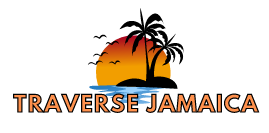How to Stay Safe While Traveling in Jamaica
Jamaica, known for its beautiful beaches, vibrant culture, and reggae music, is a popular travel destination. However, like any travel destination, it is essential to prioritize safety to ensure a smooth and enjoyable trip. This comprehensive guide provides practical tips and advice on staying safe while traveling in Jamaica, covering everything from understanding local customs to navigating transportation and avoiding common tourist scams.
1. Understanding the Local Culture and Customs
Before traveling to Jamaica, it is crucial to understand and respect the local culture and customs. Jamaicans are generally friendly and welcoming, but there are a few cultural nuances to keep in mind:
- Respect Local Etiquette: Jamaicans value manners and politeness. Simple greetings such as “Good morning” or “Good afternoon” go a long way in showing respect.
- Avoid Sensitive Topics: Discussions on politics or religion can be sensitive. It’s best to steer clear of these topics in casual conversation.
- Dress Modestly in Certain Areas: While the beach culture is laid-back, modest dress is appreciated in more traditional or rural areas, especially when visiting religious sites or local communities.
By respecting local customs and traditions, travelers can foster positive interactions and avoid unintentionally offending locals.
2. Choosing Safe Accommodation
Selecting a safe and secure place to stay is one of the most critical steps to ensure safety while traveling in Jamaica.
- Research Your Accommodation: Choose hotels, guesthouses, or resorts with good reviews and a reputation for safety. Websites like TripAdvisor or Booking.com provide reliable reviews from past guests.
- Stay in Tourist-Friendly Areas: Areas like Montego Bay, Negril, Ocho Rios, and parts of Kingston have more security measures in place for tourists. They are generally considered safer than less popular, more remote areas.
- Check Security Features: Ensure your accommodation has adequate security measures such as 24-hour security, secure entry points, and well-lit common areas.
By selecting accommodation carefully, travelers can minimize their exposure to potential safety risks.
3. Navigating Transportation Safely
Transportation safety is another vital aspect to consider when traveling in Jamaica.
- Use Licensed Taxis: Always use licensed taxis, typically marked with a red license plate that starts with “PP” or “PPV.” Avoid unmarked or unlicensed vehicles.
- Consider Using a Reputable Transportation Service: Apps like Uber are not available in Jamaica, but there are reputable transportation services such as JUTA Tours and Knutsford Express that provide reliable options for travelers.
- Avoid Public Buses: Public buses can be overcrowded and may not adhere to safety regulations. For a safer alternative, consider renting a car or using private transportation services.
- Drive Cautiously: If you decide to rent a car, be aware that Jamaicans drive on the left side of the road. Road conditions can vary, and driving can be challenging for those unfamiliar with local driving habits.
Taking these transportation precautions can help reduce risks and ensure a safer travel experience in Jamaica.
4. Staying Safe at Beaches and Tourist Attractions
While Jamaica’s beaches and tourist attractions are generally safe, it’s important to take precautions to avoid potential dangers.
- Swim in Designated Areas: Always swim in designated areas and heed warning signs or flags. Avoid swimming alone or after dark.
- Stay Hydrated and Protected from the Sun: Jamaica’s sun can be intense. Always wear sunscreen, a hat, and sunglasses, and stay hydrated by drinking plenty of water.
- Secure Your Belongings: Avoid bringing valuable items to the beach. Use waterproof bags or pouches to protect essential belongings like phones and wallets.
- Avoid Empty or Isolated Areas: Stick to well-populated areas, especially in the evenings. Tourist attractions and beaches can be safer when visited during daylight hours and with a group.
By taking these precautions, tourists can enjoy Jamaica’s natural beauty while minimizing potential safety risks.
5. Being Aware of Common Scams and Tourist Traps
Tourists can sometimes be targets for scams or dishonest practices. Awareness is the first line of defense against these common scams:
- Currency Exchange Scams: Use official currency exchange locations or ATMs located in reputable banks. Avoid exchanging money on the street.
- Fake Tour Guides: Only use certified tour guides from recognized companies. Fake guides may lead tourists to unsafe areas or demand exorbitant fees.
- Overpriced Goods and Services: Some vendors might attempt to overcharge tourists. It’s wise to research typical prices beforehand and agree on prices before purchasing goods or services.
- Pickpocketing: Be mindful of your belongings, especially in crowded areas. Use anti-theft bags and avoid displaying valuables.
By staying vigilant and informed, tourists can avoid falling victim to common scams.
6. Emergency Preparedness
Being prepared for emergencies is crucial when traveling in Jamaica or any foreign country.
- Know the Emergency Numbers: Jamaica’s emergency numbers are 119 for police and 110 for fire and ambulance services.
- Carry a First-Aid Kit: A basic first-aid kit can be handy for minor injuries or illnesses. Include essentials like band-aids, antiseptic wipes, pain relievers, and any personal medications.
- Have a Copy of Important Documents: Keep photocopies of your passport, travel insurance, and identification separate from the originals.
- Register with Your Embassy: If your country offers an embassy registration program, consider enrolling. This can provide a layer of support in case of emergencies.
Having a plan in place can make all the difference in case of an emergency.
7. Staying Informed About Local Conditions
Stay informed about the current situation in Jamaica during your visit. This includes:
- Monitor Local News: Keep up with local news sources to stay informed about any safety concerns or advisories.
- Check Travel Advisories: Before traveling, check travel advisories from your government. These advisories provide important information on safety, health, and entry requirements.
- Stay Connected: Maintain a working mobile phone with local sim options or roaming to stay connected. This can be crucial for navigation, communication, and emergency situations.
Staying informed ensures you are aware of any changes in local conditions that might affect your safety.
8. Engaging with Locals Safely
Engaging with locals can enrich your travel experience, but it is essential to do so safely.
- Be Cautious with Personal Information: Avoid sharing too much personal information with strangers.
- Trust Your Instincts: If something feels off, trust your instincts and remove yourself from the situation.
- Avoid Walking Alone at Night: Especially in unfamiliar or less populated areas, avoid walking alone at night.
Positive interactions with locals can enhance your experience, but always prioritize your safety.
Conclusion
Traveling to Jamaica can be an exciting and enriching experience, but like any destination, it comes with its own set of safety considerations. By understanding local customs, choosing safe accommodations, being cautious with transportation, and staying informed, tourists can significantly reduce potential risks and enjoy a memorable vacation in Jamaica.









